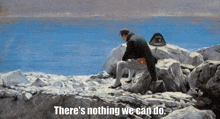
TIPIf you want to use another language, please use the translation feature in your browser.

A Letter From the Author
Dear Reader,
I used to lie awake, rewinding every misstep from my teenage years—the wrong words spoken, the chances left on the table, the moments I wish I could erase. It felt natural to replay those scenes like old VHS tapes. But one morning, I realized the scarier ache wasn’t for the past I couldn’t change—it was for the future I was failing to build.
Today, I want to share a shift in perspective that changed my life: our deepest regrets aren’t rooted in yesterday’s mistakes, but in tomorrow’s opportunities we never embraced.
Introduction
If you’ve ever fantasized like if I had the ability to travel through time even just once…I’d like to go back to this time to fix something or at least tell a whisper to your old self, but unfortunately that will never be possible.
I understand that there are some regrets that can or cannot be ignored, such as “if I could have prevented this then maybe I could be happy now” it can be a burden on your mind to dwell on past memories.
However, you don’t need to despair while you have a chance now even if it’s invisible. To prevent another misfortune from coming your way next time. By focusing on what is happening now not yesterday.
This is the topic that will be presented on this blog this time.~
1. Why We Cling to Past Regret
Human minds are wired to learn through error. Yet when learning stops at replaying mistakes, regret becomes a prison. We trap energy in:
- Endless Replays: You mentally rehearse “should-have” scenarios—
“I should have applied for that scholarship,”
“I shouldn’t have argued with them,”
“If I had not refused to cooperate with him at that time, my business would have been successful.”
“I wish I hadn’t spent my time playing with gadgets without any benefit, I would have studied A for my future.” - Anchored Fear: The more you focus on what went wrong, the more you hesitate to try anything new.
- Emotional Burnout: Spending time fretting over what you can’t fix leaves no bandwidth to shape what you can.
Regret becomes a mirror that only shows you what’s already broken—never what could be built.
2. The Quiet Sting of Future-Regret
Imagine looking at two blank pages. One represents your unchangeable past, the other your unformed future. Which feels heavier? For many of us, that blank future page carries a quiet terror:
- Unwritten Potential: Those ideas you never started, that skill you never practiced, that conversation you never had.
- Broken Promises to Self: Remember when you vowed to learn coding, start a side hustle, or travel solo? Each unkept promise builds a silent ledger of regret.
- Self-Betrayal: Skipping workouts, postponing savings, ignoring meaningful connections—every “later” chips away at your confidence that you’ll ever “get around to it.”
- wrong decision in past: e.g. spending a young age being lazy, being afraid to try, hitting someone out of emotion, becoming a drunk or gambling addict, etc.
Future regret is the ache of unrealized possibility.
3. Case Study 1: Maya’s Missed Application
Background: Maya, a bright university sophomore, dreamed of studying abroad. She met every deadline—except the one that mattered most: the scholarship application.
What Happened: A busy semester distracted her. She told herself she’d get to it “tomorrow.” When the deadline passed, Maya was devastated—but she poured all her energy into wishing she’d been more organized.
The Real Regret: Years later, Maya still regrets the gap in her résumé more than the sleepless nights spent regretting her procrastination. She wonders how different her life might have been if she had simply spent one evening completing that form.
Lesson Learned: Fixating on her past procrastination kept her in a cycle of “I’m bad at deadlines.” Only when Maya refocused on future scholarships—building a calendar and accountability group—did she break free and actually apply.
4. Case Study 2: Jordan’s Health Wake-Up Call
Background: Jordan, 28, led a hectic life—late nights coding, fast food lunches, no exercise routine.
What Happened: After an annual physical flagged high blood pressure, Jordan spent months blaming his genes and lamenting the years of junk food.
The Real Regret: He realized his deepest regret wasn’t that he’d eaten poorly—it was the years he wasted doing nothing about it.
Turning Point: Jordan decided to train for a 5K run six months out. That one commitment reshaped his habits: cooking meals on Sundays, waking up to jog, and celebrating incremental health milestones.
Lesson Learned: Shifting focus from “why did I let myself go?” to “what healthy habit can I start today?” turned regret into action.
5. Case study 3: Arthur with feel a Stagnant Life
Background: Arthur, 15, Spending his time playing games, not studying seriously at school, not having dreams/ambitions to achieve, hanging out with mediocre people, living spoiled full of laziness, not wanting to at least try to be independent, and not wanting to try to learn new things … in other words just wanting to live normally.
Whathappened: after years passed without any perceived change. Until the age of 25, he just regretted what he did in the past was really futile because many people out there were already successful at his age now.
The Real Regret: Unbeknownst to him, many people were fighting tooth and nail to achieve their dreams faster, while he felt like he was wasting his time.
Turning Point: Arthur did not want his fate to be so in the future, so he decided to start learning what he had neglected to correct his mistakes first, just as he wanted to change himself to achieve the dreams he had just set at this time.
Lesson Learned: Forgiving about the past, looking forward to the future with a well-thought-out plan. Because nothing is impossible with effort.
6. Decisions as Time-Stamped Promises
Each choice we make is a message—stamped with today’s date—from our past self to our future self:
| Action Today | Message to Tomorrow’s You |
|---|---|
| Saving $20 this week | “I care about your security.” |
| Sending that networking email | “I believe you’re worth knowing.” |
| Spending 30 minutes learning a new language | “I want you to speak confidently one day.” |
| Saying no to overtime | “I value your rest and well-being.” |
When you reframe decisions this way, they become tiny time-travel conversations. Your future self reads them and either smiles or sighs.
7. Four Steps to Future-Focused Living
-
Visualize Your Future Self
Spend two minutes each morning picturing your life five years from now—career, health, relationships. Let that vision guide today’s choices. -
Ask the “Future Regret” Question
Instead of “What will I regret from my past?”, ask “What will I regret not doing in the future?” Let that question steer you when you hesitate. -
Align Small Daily Actions
Identify three micro-actions each day your future self will thank you for—saving a bit, learning a bit, connecting a bit. Track them in a simple journal. -
Review Weekly Through Tomorrow’s Eyes
At week’s end, score your actions: how many were “yes” letters to your future self, and how many were “sorry, not this time”? Use that insight to plan next week.
8. Overcoming Common Roadblocks
-
“I don’t have time.”
Reframe: Carving out ten minutes for growth today is ten more minutes for freedom tomorrow. -
“What if I fail?”
Reframe: Even if you don’t succeed today, trying is still a message to your future: “I showed up.” -
“It’s too late.”
Reframe: You’re never too late to plant a seed—trees can begin growing in mid-life.
9. Cultivating a Future-First Mindset
- Daily Reminders: Put a sticky note on your mirror: “My regret will be what I never become.”
- Accountability Partners: Share one weekly future-focused goal with a friend and check in on progress.
- Celebrate Micro-Wins: Every deposit into your future—no matter how small—is worthy of a mini-cheer.
When regret is no longer a backward-looking vice but a forward-looking compass, your energy shifts from stuck to striving.
10. Conclusion: Write Your Next Chapter Now
Dear Reader, the past is fixed—but the future is yours to script. Every moment you spend lamenting yesterday is time stolen from tomorrow’s possibilities. Let regret become your guidepost, not your shackles. Start today with one small act of faith in who you can yet become.
If you have realized, then do what you have to do now for the future by thinking about whether I will regret it or not, so that your future self thanks you in the past.
even so having past regrets is difficult to forget, but try to let go of what has happened and decide the best steps forward.
“Regret is the echo of an unopened door. Open it today.”
Your future self is waiting. What will you promise them with the choices you make right now?

